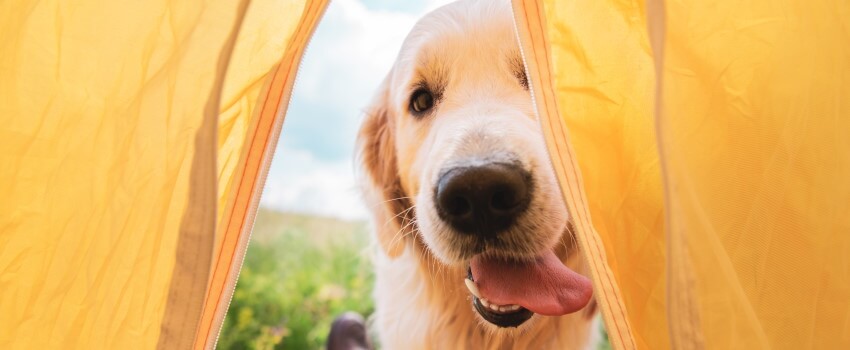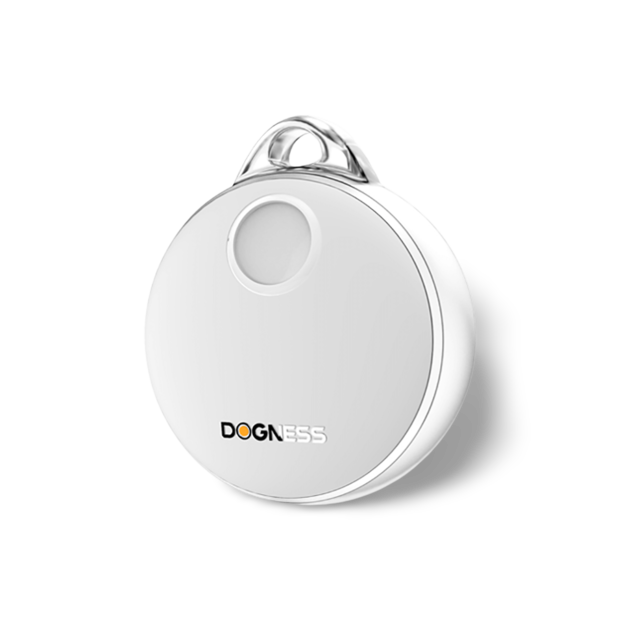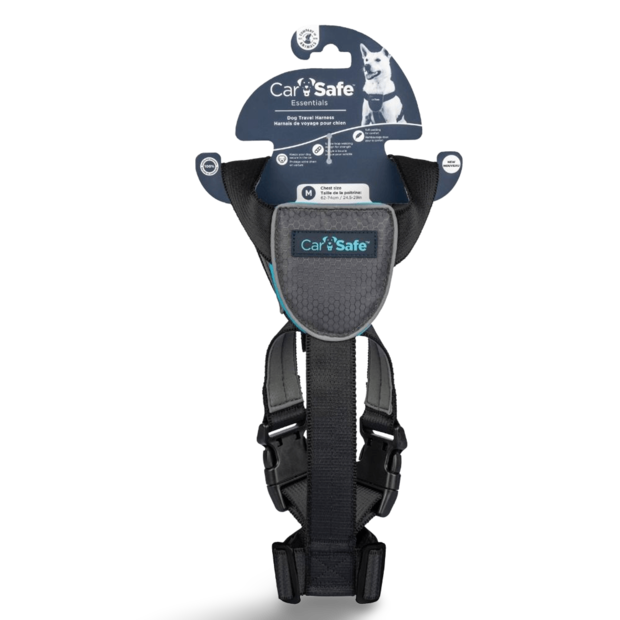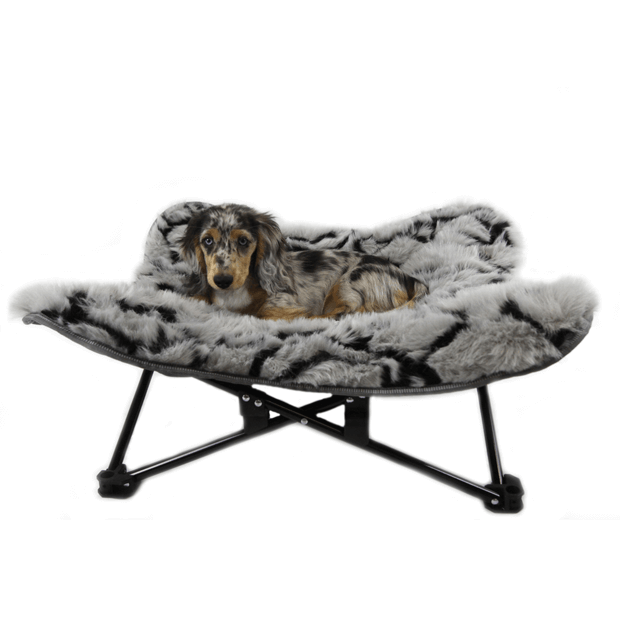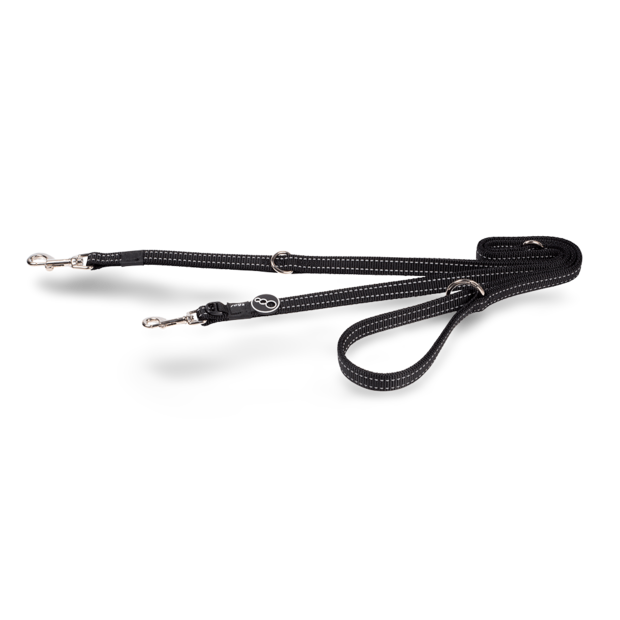Camping with Dogs
This article is written by Pet Circle veterinarian, Dr Angie Armstrong BVSc
Camping has become more popular recently with people wanting to get out into nature but many don't want to leave their furry companion behind! Why not take your dog along for an adventure? Just be sure to read our handy tips for a smooth and enjoyable camping experience for the whole family!
Contents:
Dog-friendly destination

The first thing you want to confirm is that you are allowed to take your pooch to the campground you are staying at. Not all campgrounds are dog friendly, and some will only allow dogs out of peak times. There is also a limit on the number of dogs you are allowed at certain sites so be sure to check the fine print when booking! Dogs are also not allowed in National parks so do take this into account when choosing your camping destination and especially if you are deciding to embark on some hiking adventures with your furry companion!
Vaccination
 Verify
your dog is up to date with their vaccination. Some campgrounds will ask to see
proof that your pooch is currently up to date with their vaccinations. You can either take their
vaccination booklet with you, or a certificate from your vet; alternatively they may ask for
proof of vaccination via email before your arrival. Do be aware that vaccinations do take a
while (approximately 2 weeks) before they are effective so don't leave vaccinating them until
the last minute before travelling! Some of the more common infectious diseases we vaccinate
against are Kennel
cough and Parvovirus.
Verify
your dog is up to date with their vaccination. Some campgrounds will ask to see
proof that your pooch is currently up to date with their vaccinations. You can either take their
vaccination booklet with you, or a certificate from your vet; alternatively they may ask for
proof of vaccination via email before your arrival. Do be aware that vaccinations do take a
while (approximately 2 weeks) before they are effective so don't leave vaccinating them until
the last minute before travelling! Some of the more common infectious diseases we vaccinate
against are Kennel
cough and Parvovirus.
Ensure your pet's microchip details are up to date in case you become separated from them and ideally have a collar with an identifiable tag or look at the following gps tracker and smart tags.
Shop All Dog Technology Walking Accessories
Parasite Preventatives

Take into account that your travel destination may require extra protection for your dog that you may not usually use, for example paralysis ticks. Paralysis ticks are venomous and will quickly cause paralysis and even death if left untreated. Paralysis ticks are commonly found on the East coast of Australia. For more information have a read of our article: Tick Paralysis in dogs and cats.
There is also another tick borne disease that you should be aware of called Ehrlichiosis, this is especially if you are travelling to Northern Western Australian or the Northern Territory. For further information read our article Everything you need to know about Ehrlichiosis and Flea, tick and worm prevention for dogs.
\Car Travel
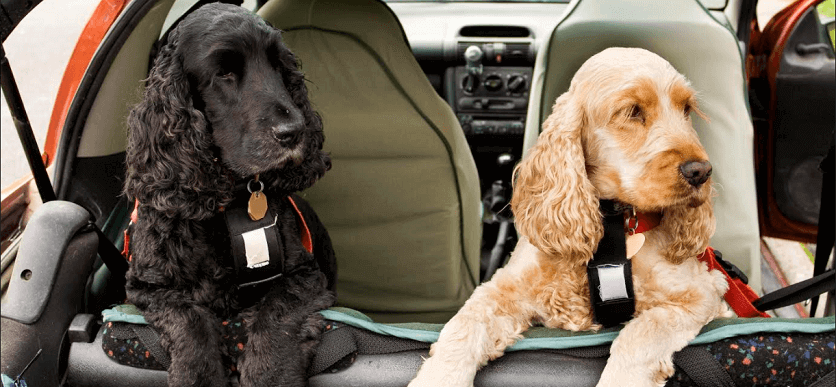
Is your pooch used to travelling in the car and do they get car sick? If you are not sure, it is best to do a trial run to prevent any travel anxiety. Consider using traveleze or homeopet travel anxiety to decrease symptoms of motion sickness. Additionally, try not to feed them two hours before leaving and make sure they are used to being in the car and can be safely secured with a travel harness and booster seat.If you are travelling a long distance it would be advisable to stop every few hours for a toilet and water break!
Pack the necessities

Have a plan on what your pooch will be sleeping in and make sure this is safe and secure. Be aware that the majority of campsites require dogs to be tied up on a lead at all times so it can be useful to invest in a longer lead or some ropes and tent pegs come in handy for securing these into the ground! .
Make sure their food is stored in an appropriate container in a secure area where other wildlife or the dogs themselves can't get to it.Collapsible bowls come in handy when travelling for eating and drinking out of and are great space savers.
From experience you can never have too many towels for drying wet or muddy dogs so do pack enough of these. And if going somewhere cooler do pack their coats and jumpers as they may require these in the winter months. Furthermore if you are travelling in the warmer months make sure there are enough shaded spots for them to cool off under.
Be prepared and organised

It is always a good idea to check out where the closest vet is to where you will be staying in case unexpected veterinary attention is required! Don't forget Pet Circle has their Vet Squad Live Chat available 7 days a week for any advice needed. Consider taking a Pet First Aid Kit with you which may come in handy for minor incidents that don't require immediate veterinary care. Lastly write a checklist of everything you will require and don't forget the poop bags!
Travel Essentials Checklist
- Travel Food Bowl and Travel Water Bowl
- Collar with ID tag
- Lead and Walking Harness
- Car restraint device- harness/seat belt/booster seat/carrier
- Favourite Toy
- Poop Bags
- Parasite Protection - up to date and additional if required
- Comfortable Bed
- Towel and Grooming Products
- Any Prescription Medications
- Calming Aids if required
- Pet First Aid Kit
Further reading
Top tips for travelling with your dog
Your guide to fleas, ticks and worms
Teaching your dog to enjoy swimming
Want to know more? Check out our Discover Page for more tips from our expert vets on keeping your pets happy and healthy.























